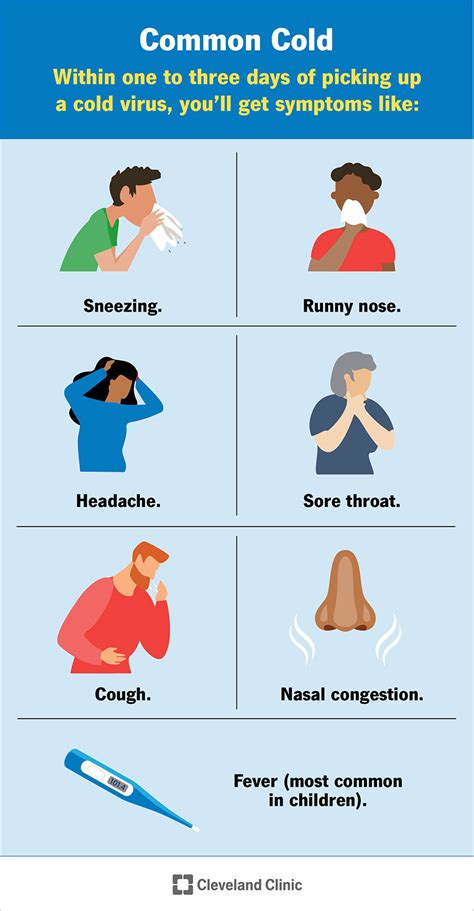Intro
When it comes to the common cold, there are many remedies that claim to alleviate symptoms and help you feel better. With so many options available, it can be overwhelming to decide which ones to try. The common cold is a viral infection that affects millions of people worldwide, causing symptoms such as congestion, coughing, and fatigue. While there is no cure for the cold, there are several remedies that can help manage symptoms and reduce the duration of the illness. In this article, we will explore seven cold remedies that have been proven to be effective in alleviating cold symptoms.
The common cold is a highly contagious illness that can be spread through the air or by touching surfaces that have come into contact with the virus. It is essential to practice good hygiene, such as washing your hands frequently and avoiding close contact with people who are sick, to reduce the risk of catching a cold. However, even with the best precautions, it is still possible to catch a cold. When this happens, it is crucial to have a range of remedies at your disposal to help manage symptoms and support your body's natural healing process.
Cold symptoms can be debilitating, making it challenging to go about your daily routine. A sore throat, runny nose, and persistent cough can make it difficult to sleep, work, or enjoy social activities. Furthermore, the common cold can lead to complications such as sinus infections, bronchitis, and pneumonia, especially in people with weakened immune systems. Therefore, it is vital to take cold symptoms seriously and seek medical attention if they persist or worsen over time.
Understanding the Common Cold

Symptoms of the Common Cold
The symptoms of the common cold can vary from person to person, but common symptoms include: * Runny nose * Congestion * Sore throat * Coughing * Fatigue * Headache * Sneezing * Loss of appetite7 Cold Remedies

1. Stay Hydrated
Staying hydrated is essential when you have a cold. Drinking plenty of fluids, such as water, tea, and soup, can help to thin out mucus and keep your respiratory tract moist. This can help to reduce congestion and coughing, making it easier to breathe. Aim to drink at least 8-10 glasses of fluid per day, and avoid caffeinated and sugary drinks that can dehydrate you.2. Rest and Relaxation
Getting plenty of rest and relaxation is crucial when you have a cold. This can help to support your immune system and reduce stress, which can exacerbate cold symptoms. Aim to get at least 8 hours of sleep per night, and take naps during the day if you need to. You can also try relaxation techniques, such as meditation and deep breathing, to help reduce stress and promote relaxation.3. Use a Humidifier
Using a humidifier can help to add moisture to the air, which can help to relieve congestion and coughing. Dry air can irritate your respiratory tract, making symptoms worse. By adding moisture to the air, you can help to keep your respiratory tract moist and reduce symptoms. Look for a humidifier that has a built-in humidistat, which can help to regulate the moisture level in the air.4. Try Steam Inhalation
Steam inhalation can help to loosen mucus and reduce congestion. You can try inhaling steam from a bowl of hot water or a steam inhaler. Add eucalyptus oil or menthol to the water for added benefits. Steam inhalation can help to open up your airways and reduce coughing, making it easier to breathe.5. Use Saline Nasal Sprays
Saline nasal sprays can help to moisturize your nasal passages and loosen mucus. Look for a spray that contains sodium chloride and water, and avoid sprays that contain additives or preservatives. Saline nasal sprays can help to reduce congestion and coughing, making it easier to breathe.6. Try Honey
Honey has natural antibacterial and anti-inflammatory properties, which can help to soothe a sore throat and reduce coughing. Look for raw, unfiltered honey, and avoid honey that has been pasteurized or filtered. You can try taking a spoonful of honey straight, or add it to tea or warm water.7. Use Echinacea
Echinacea is a natural herb that has been shown to have immune-boosting properties. It can help to support your immune system and reduce the severity of cold symptoms. Look for supplements that contain Echinacea purpurea or Echinacea angustifolia, and avoid supplements that contain additives or preservatives.Additional Tips

Conclusion and Next Steps

We hope this article has provided you with valuable information and insights into the common cold and its remedies. If you have any questions or comments, please don't hesitate to reach out. Share this article with your friends and family to help them stay healthy and informed. Take the next step and try out some of these remedies to see what works best for you.
What is the best way to prevent the common cold?
+Practicing good hygiene, such as washing your hands frequently and avoiding close contact with people who are sick, is the best way to prevent the common cold.
How long does it take to recover from the common cold?
+The recovery time for the common cold can vary from person to person, but most people recover within 7-10 days.
Can I take antibiotics to treat the common cold?
+No, antibiotics are not effective against the common cold, which is caused by a virus. Taking antibiotics can actually do more harm than good, as it can lead to antibiotic resistance and side effects.
How can I relieve a sore throat caused by the common cold?
+Trying honey, gargling with salt water, and using a humidifier can help to relieve a sore throat caused by the common cold.
Can I exercise when I have the common cold?
+Yes, you can exercise when you have the common cold, but it's essential to listen to your body and not overexert yourself. Gentle exercises, such as yoga or walking, can help to boost your immune system and reduce stress.
